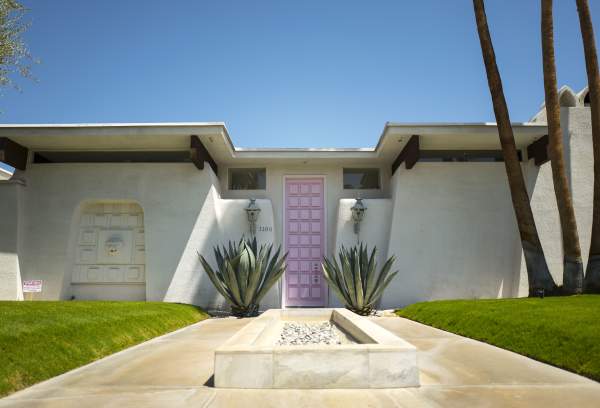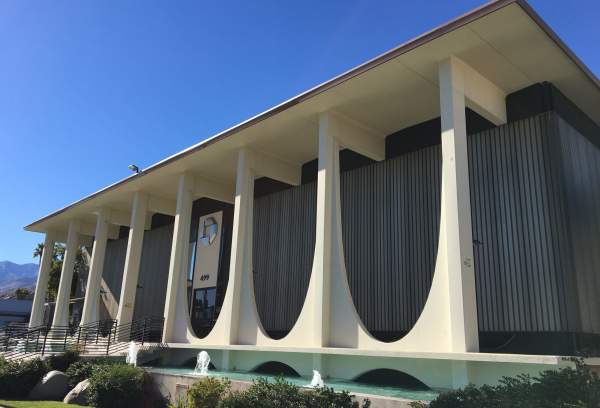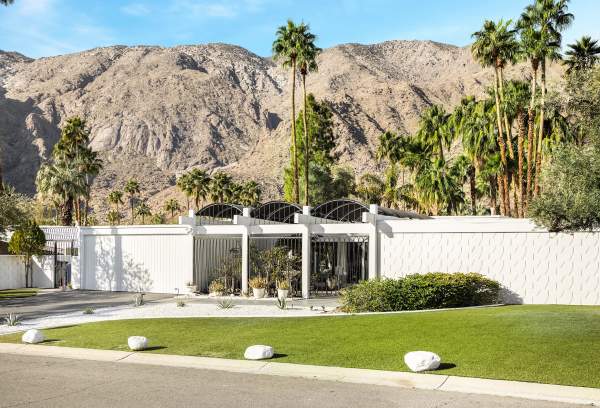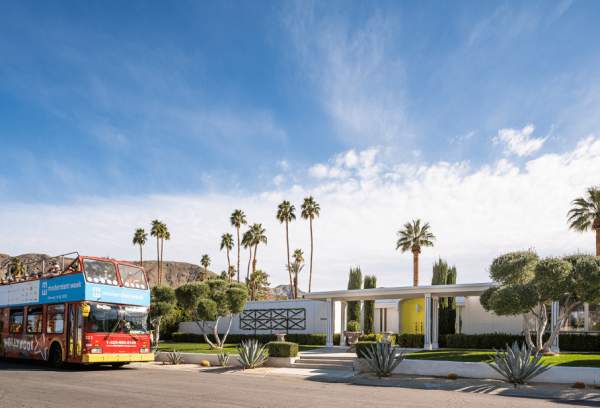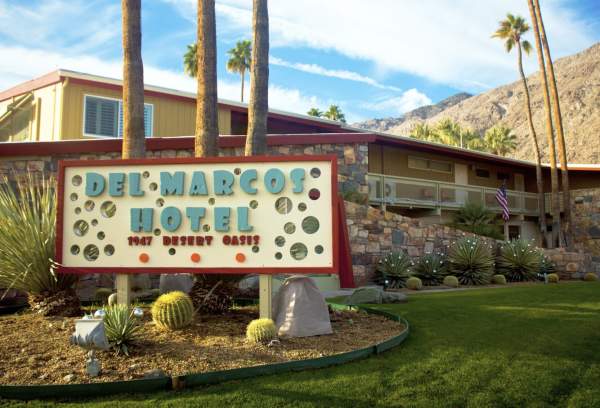William Cody (1916-1978) was retained to alter the Desert Inn in 1945, his first commission in Palm Springs. He completed the Del Marcos Hotel in 1947, his first independent commission, which was recognized by the AIA Southern California Chapter with an honorable mention.
Palm Springs became a fashionable weekend and winter retreat post-World War II for the rich and famous. William Cody’s career began to flourish along with the city. He decided to move his practice and his family to Palm Springs. The Thunderbird Dude Ranch hired Cody in 1950 to change it into the Thunderbird Country Club. This led to other commissions, such as altering clubhouses, recreational facilities, and residential developments. This included the Eldorado Country Club (with Ernest J. Kump), Tamarisk Country Club, the Racquet Club, and the Tennis Club.
He began almost a decade of work in 1960, altering and expanding the Palm Springs Spa Hotel (demolished).
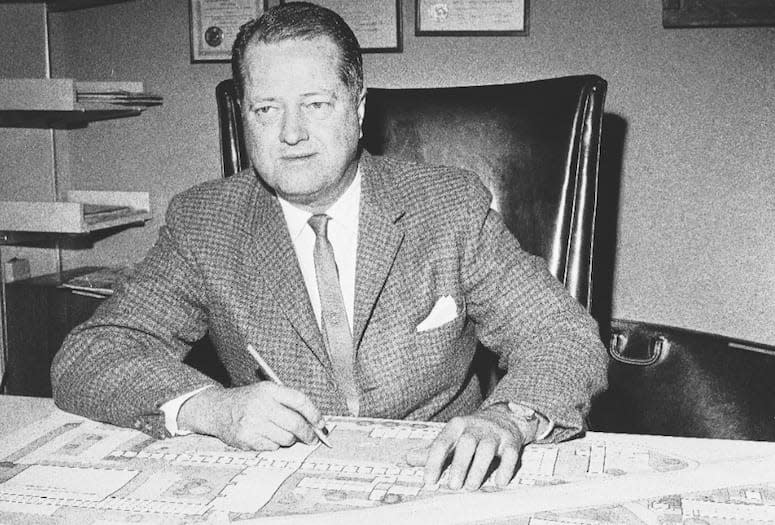
William Cody’s specialization in country club clubhouses with related residential developments led to additional commissions in California, Arizona, Texas, Cuba, and Mexico. His residential projects emphasized critical elements of Modernism. This included simplicity of form, natural light, and large windows offering a seamless connection between residential interiors and the outdoors. Because no one style boxed him in, it made his style hard to pin down and was often overlooked in architectural circles.
William Cody was licensed to practice architecture in California and Arizona by 1946. Cody's celebrated designs include the Abernathy Residence, Palm Springs Library at Sunrise Park, St. Theresa's Catholic Church, and the L'Horizon Hotel.
William Cody Residence, 1946
1950 E. Desert Palms Drive
William Cody's contemporary home was built on different levels following the contour of the land. It offers walls of glass with structural steel framing and sliding doors from two of the bedrooms and living room openings to a screened and shaded inner garden court. In the center of the tile-floored living room is a fireplace brazier and tables and foam cushions to form a conversation grouping in a sunken area known as "The Pit." Other unique features are a bomb shelter, a retracting ceiling over Cody's bed, a toy closet, and pivot doors. This is located in the Sunrise Park neighborhood.
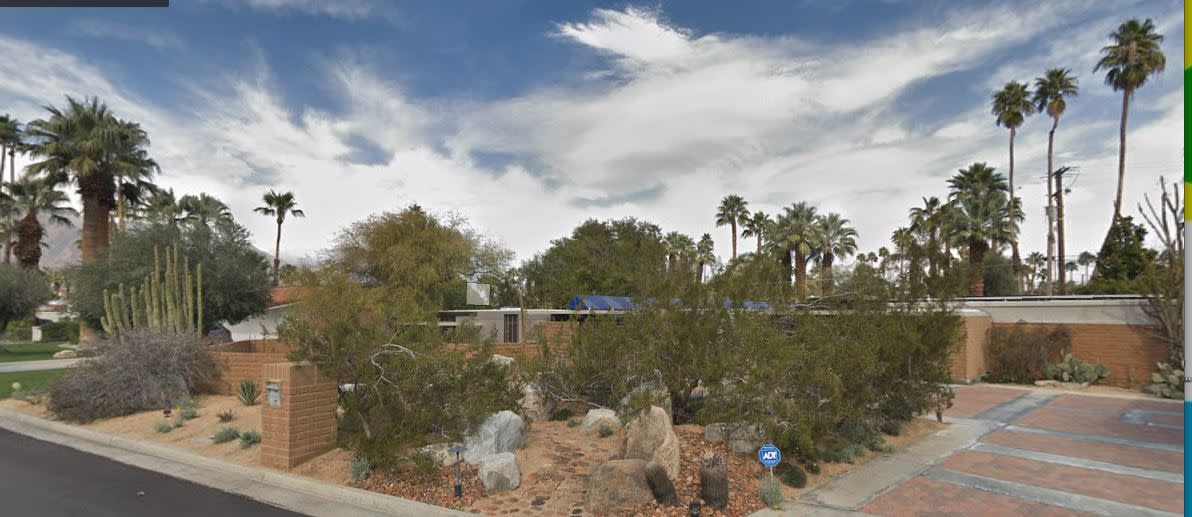
Del Marcos Hotel - 1947
225 W Baristo Rd
In 1947, William Cody received his first independent commission for completing the Del Marcos Hotel, which opened in 1948. The owner of the modern-styled resort was S. W. Marcos, a winter resident and a real Villager.
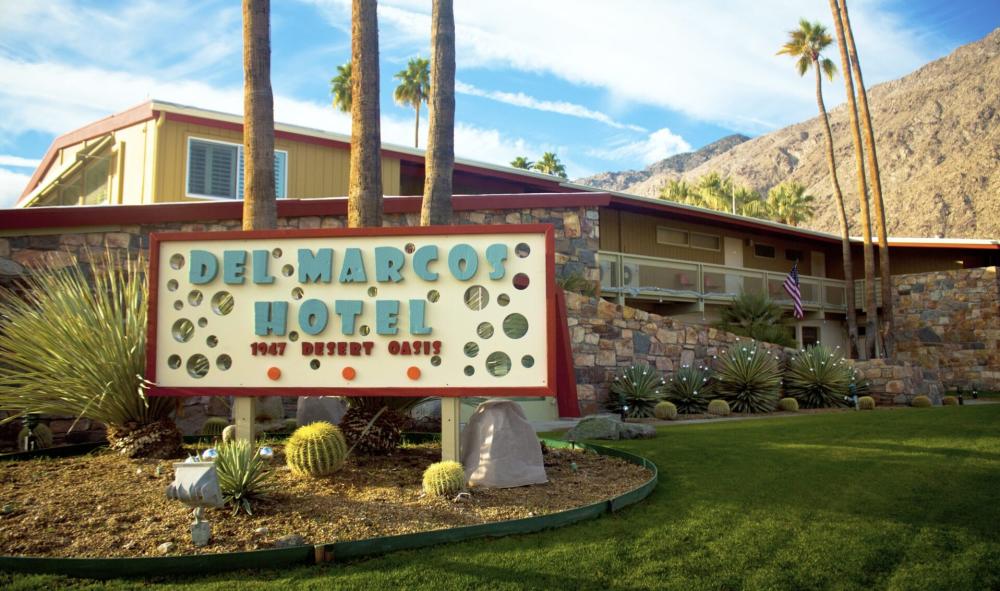
Dorothy Levin Residence, 1948
1940 E McManus Drive
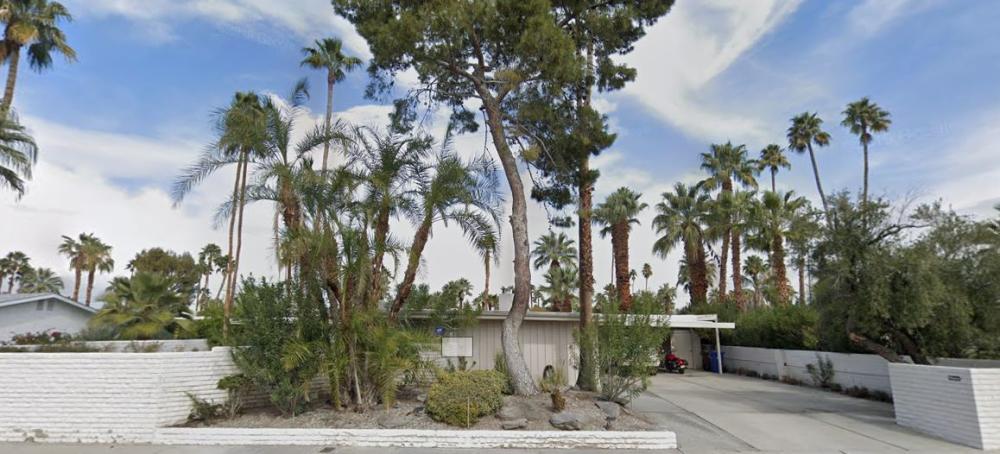
Desert Palm Estates - 1951
Developer Jack Meiselman approached architect William Cody around 1950 to design a series of three-bedroom/two-bathroom houses for him for a cluster of parcels within the Desert Palms Estates tract. Surviving drawings indicate what appear to have been two plans and three elevations for each plan, for a total of six designs. Park Drive borders them to the north, McManus Drive to the south, Sunset Way to the east, and other tract parcels to the west. These homes are now part of the Sunrise Park neighborhood where William Cody lived.
L’Horizon Hotel - 1952
1050 E Palm Canyon Dr
L’Horizon was built in 1952 as the private family retreat for the television producer, oil tycoon, and legendary hotel owner Jack Wrather and his wife, Hollywood actress Bonita “Bunny” Granville. He is best known for producing the Lone Ranger and Lassie. She was in Now, Voyager with Bette Davis. Wrather commissioned architect William F. Cody – known for his desert modern work – to design his retreat with a cluster of guest houses as hideaways for his Hollywood friends.
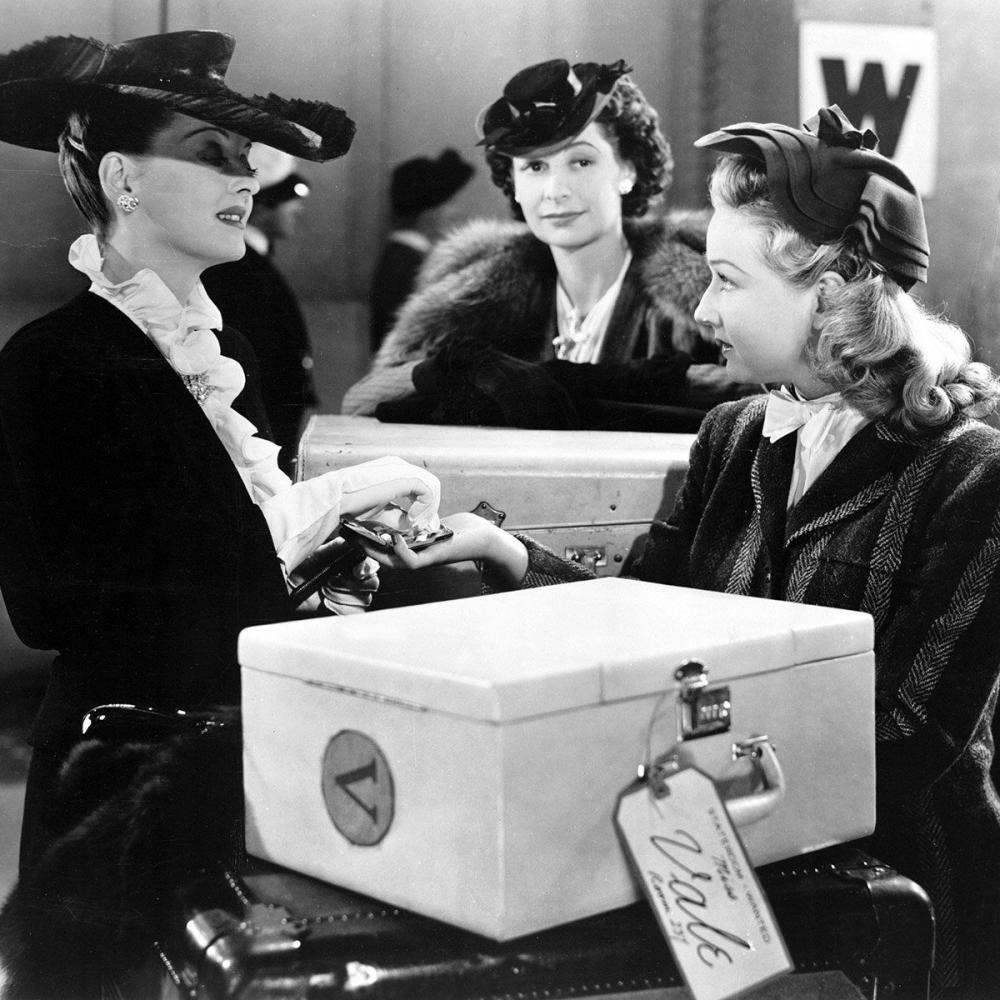
Bette Davis is on the left, and Bonita Granville is on the right.
Wrather’s property was a playground for Hollywood’s elite throughout the 1950s and 1960s. This included Marilyn Monroe, Betty Grable, and other VIPs like the Nixons and Reagans. Over the past few decades, the property fell into disrepair and lost its glamour. That is, until Los Angeles-based “designer to the stars” Steve Hermann learned that the property was for sale and snapped it up. L’Horizon was reopened in July 2015 after a multi-million dollar renovation.
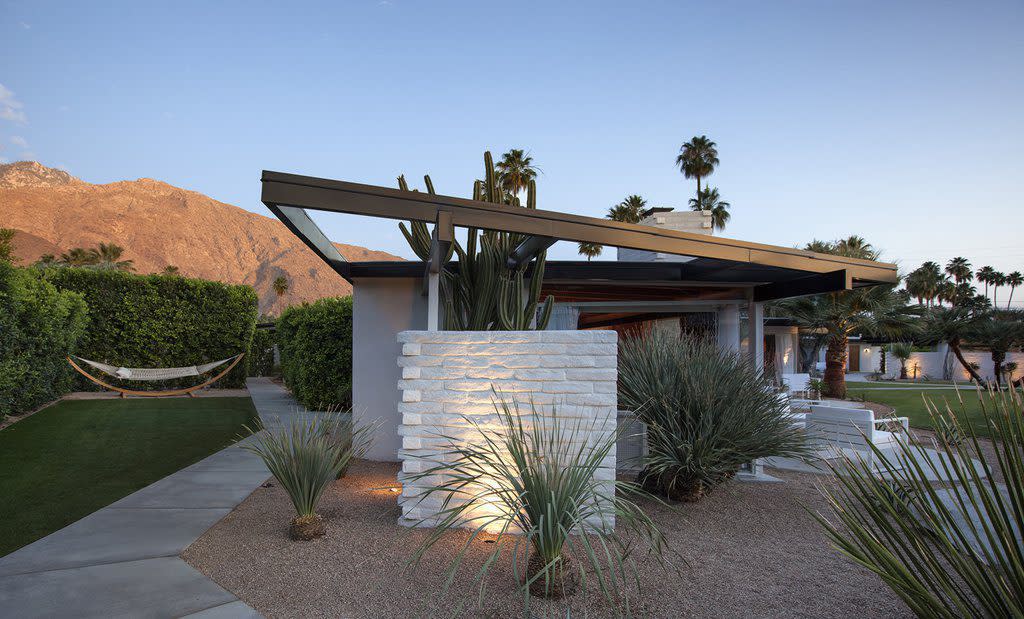
The William Perlberg and Bobbie Brox House - 1952
888 N. Avenida Palmas
Cody continued to explore simple forms with flat or gently sloping shed roofs that reduced the dimensions of column and roof structures to a minimum, creating light profiles.
Racquet Club Cottages West (RCCW) - 1960
360 W. Cabrillo Road, Palm Springs, CA 92262 (historic address 2743 N. Indian Avenue)
This was designed by William Cody and built by developer Paul Trousdale. Today, it consists of 37 units (54 “historical” units) in 18 buildings and two structures. Located at the western end of the complex, the pool is surrounded by a large open landscaping area. This serves as a buffer between the pool and the westernmost units. A fence enclosing the pool was added (at an unknown date), presumably due to safety requirements. Although detached, the westernmost buildings of the complex are arranged in half-circles, creating an enclosure for the common center courtyard. The units and site of the RCCW complex have only seen some minor alterations. As a result, the essential characteristics of form, plan, space, structure, and style have survived intact.
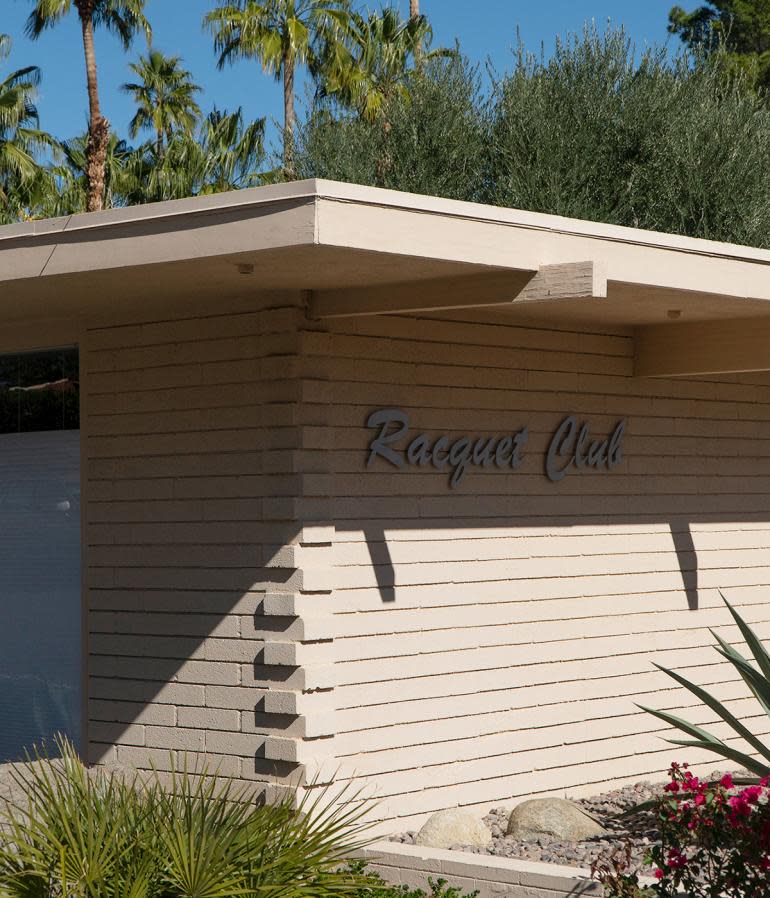
Abernathy Residence - 1962
611 North Phillips Road
William Cody designed the house in 1962 for James Logan Abernathy. He was a wealthy socialite in Palm Springs and the son of a pioneering furniture manufacturer in Kansas City. The residence is formed by two L-shaped sections linked at their joints by a central square unit. But it is more notable for its ample outdoor areas. Most of the outdoors are encompassed by an overhanging roof that spans nearly 10,000 square feet (929 square meters) – doubling the home's livable footprint.
New York-based architect Michael Haverland restored the house in 2012 with designer Darren Brown and architect Thomas Morbitzer. The project included maintaining its original details and décor while upgrading the home's windows and outdoor spaces.
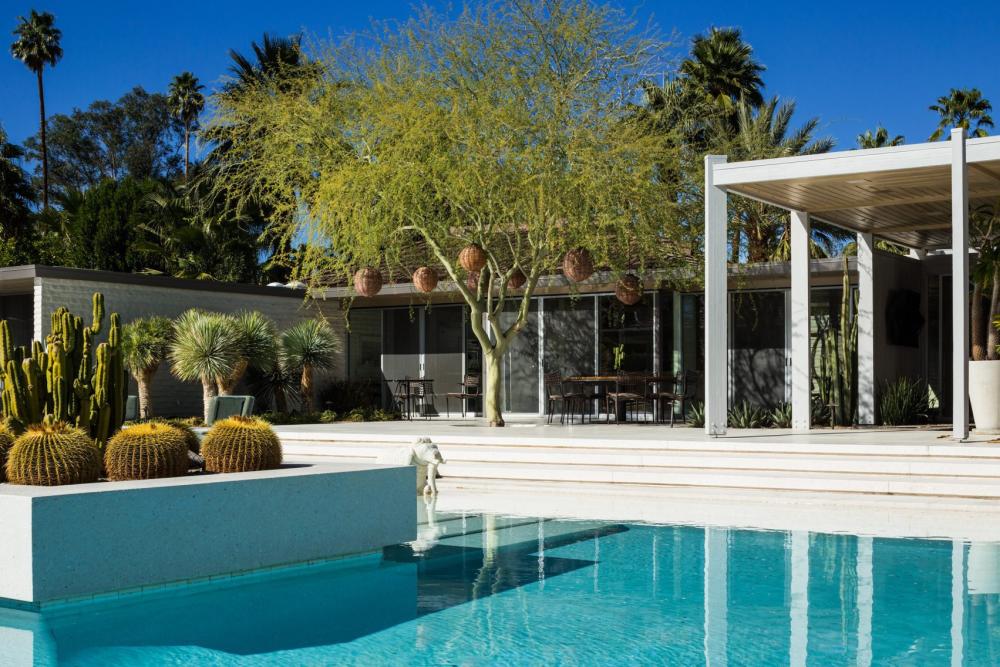
Credit: Dezeen
Commercial Gas Station - 1964
2796 N. Palm Canyon Drive
The station opened under the name “Tramway Shell Service Station.” It was lauded in the Desert Sun for its modern design and amenities. Alterations to the property include the 1984 addition of a mini-mart/convenience store to the west façade of the service garage, fronting N. Palm Canyon Drive. Other alterations to the property include replacing the gasoline fueling pumps and concrete islands in 1991. Additionally, the boarding up of original troffer lighting recessed within the canopy and the addition of new fluorescent lights to the underside of the canopy. Finally, a metal storage enclosure is added to the east façade.
You can still fill up here!
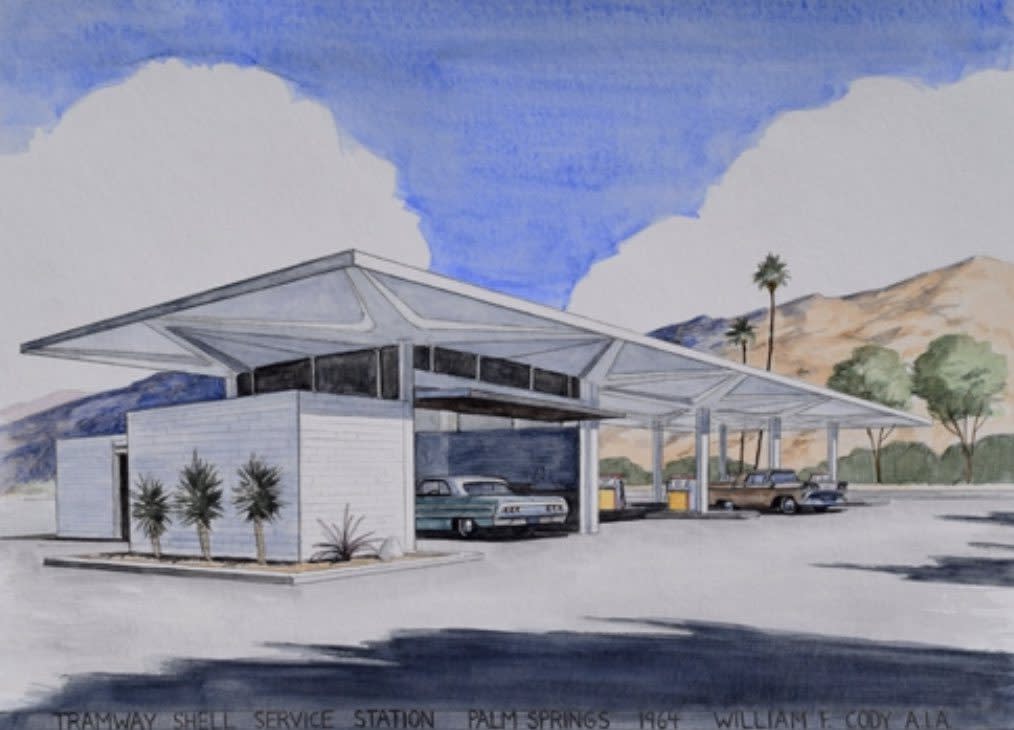
St Theresa Catholic Church - 1968
2900 Ramon Rd
The 10-foot marble altars were carved in Italy to Cody’s precise specifications. The sculptured ceilings drape like tented fabric, and the clerestory windows welcome broad rays of strategic natural light. The main entrance at St. Theresa is at the base of a cross shape. Outside, you will be greeted by red and yellow stained glass in a pattern William Cody designed. It shimmers in the morning sunlight. However, the space darkens dramatically as you move through the heavy wooden doors. The floor is slate, the ceiling is that same dark wood, and light sneaks in through clerestory windows.
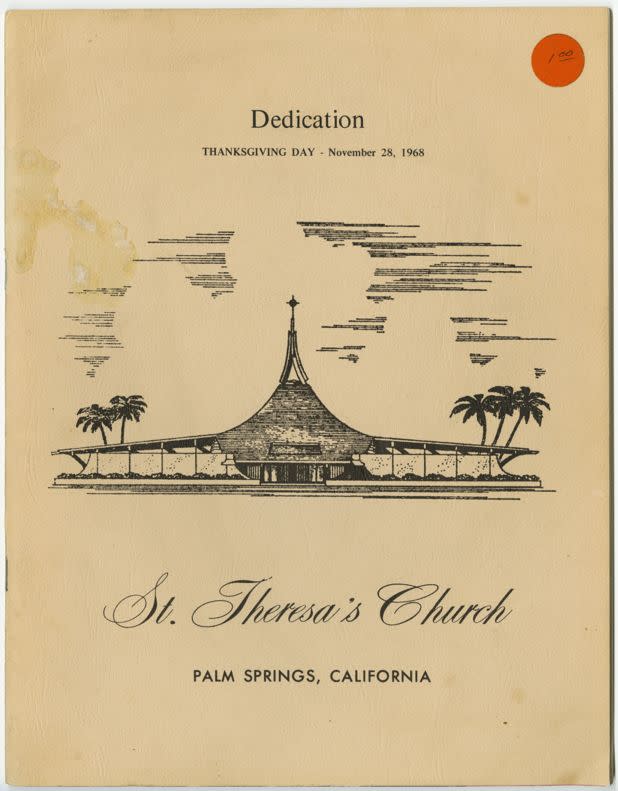
Glass House - 1967
755 Cam Norte
The Palm Springs Glass House, designed in 1967, is an exceptional example of William Cody's work. It showcases his magic by combining international minimalist style with the indoor/outdoor way of living so emblematic of Palm Springs in the mid-century. Called the "master of thin" by other architects, Cody's fragile roof floats above a glass house that is almost perfectly symmetrical. A master wing flanks a 40 x 25 foot central pavilion at one end and kitchen/guest quarters at the other end. The front yard, shielded from the street by walls of slump stone (a signature Cody detail), imparts a distinctive oriental feeling like that of a zen temple rock garden. Additionally, the protective walls at the street ensure privacy for the occupants of the glass temple within. This arrangement allows the owner and guest to absorb garden, mountain, and city views.
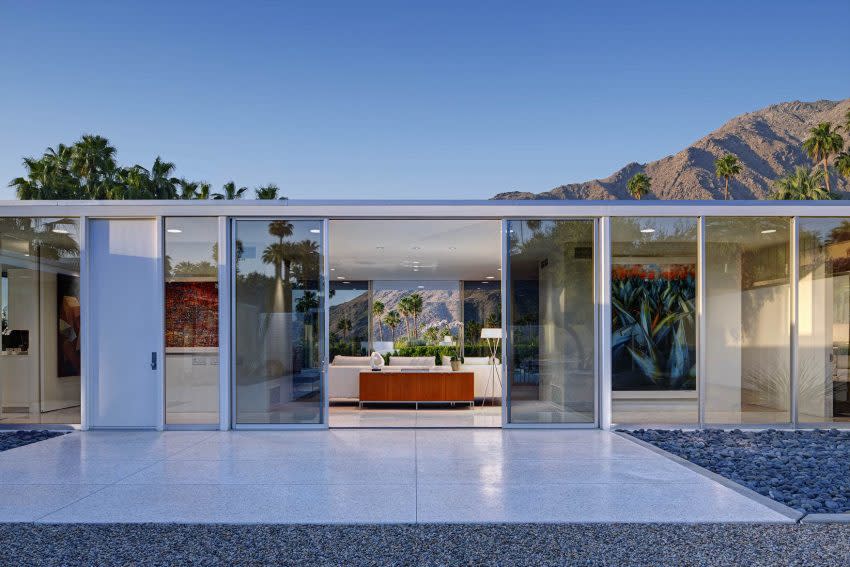
Palm Springs Library - 1975
300 S Sunrise Way
Carl Lykken donated $10,000 in 1971 to be used for the construction of a new city library. He was one of Palm Springs's pioneers and a 29-year Palm Springs Library Board member. The city passed proposition “R” for seven new recreational facilities, including a new library. Of the money raised, $104,733 went to William Cody for the library design. The building was expected to cost $1 million. It was to be built on what was then the Polo Grounds but is now by the baseball field. Groundbreaking was in June 1974. Contractor Peter Kiewit built the new central library for $1,418,000.
A central and spectacular focus in the new building was the indoor fountain set in a skylighted atrium. The Friends Of The Library donated the decorative fountain tiles and tile work.
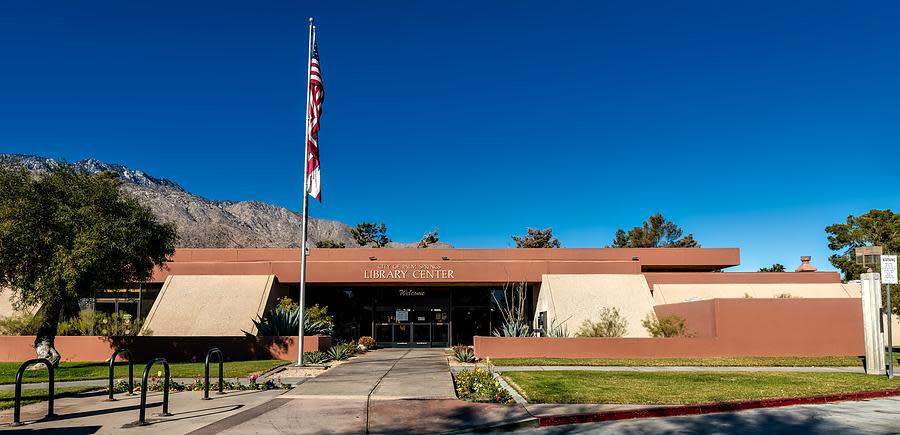
Desert Modernism
Palm Springs Architect – Charles Du Bois
Palm Springs Architect – E. Stewart Williams
Architects Who Built Palm Springs: Dan Palmer & William Krisel
Palm Springs Self-Guided Colored Door Tour
- 8 min read
The colored doors of Palm Springs are delightful and popular. This…
Discover Palm Springs Through the Eyes of Architectural Historian Michael Stern
- 5 min read
Conventionally, buildings are constructed to shield us from the…
Mod Squad Tours: Experience Palm Springs Architecture Up Close
- 4 min read
Palm Springs is a living museum of midcentury modern architecture, and…
Complete Guide to Modernism Week 2025
- 29 min read
Thank you for joining us for Modernism Week. We look forward to seeing…
9 Midcentury Boutique Resorts: Where Timeless Design Meets Desert Luxury
- 8 min read
9 Iconic Midcentury Modern Resorts & Inns Palm Springs isn’t…
